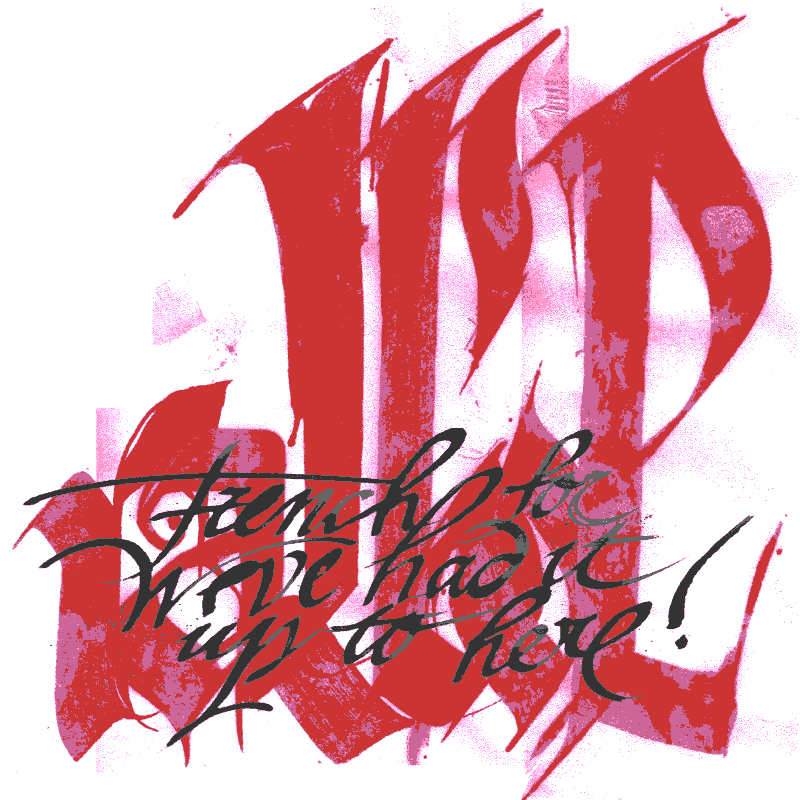I)
I've played Ezra to T. S. here, cutting down to the boneless, preserving the fluid movement from Trojan warriors to helium balloons. Note how the author has mastered the serene nostalgia of Hector's Farewell: everything is presented as a Fata J. P. Morgana. A skull-cracking demonstration should not mean, but be.
And how could it be anything else since, by the very fact that it's in the New York Times and by a poet, yet, it gains the faux-modest status of Eternal Truth. I know the writer's seventy years old and specializes in nostalgia poems and he hadn't even chosen to join the demonstrators and his wife happened to have decided to talk Love and Peace to the cops, which is a waste of time and beyond stupid; if anyone I loved did that I'd hate myself for letting them, and hate the cops beyond what poetry can tell; this poem reminds me of the passage in Hayyim Nahman Bialik's poem שטאָט-שחיטה אין, in which the pious Jews, the day after the Kishinev Pogrom, trot off to the rabbi to ask if it's still okay to sleep with their wives after they've been raped by Cossacks.
II)
A relative, ex-writer for the Nation, a member of Amnesty International, calls to ask, what does this Occupy movement mean? It means, I want to answer, that demonstrators are demonstrating - they're demonstrating the fact that demonstrators get beat up by the police, and then they say (in case you hadn't figured it out) that "THIS IS WHAT DEMOCRACY LOOKS LIKE," which suggests either that the demonstrators are demonstrating what a real democracy should look like, or that the cops are demonstrating what Democracy is. Like all good poetry it means both: that we're not living a revolution but a counter-revolution, a reaction to our gradual disenfranchisement by the Government, the cops, the elites that's been underway since Kent State; a reaction like the failed reaction that could not preserve Austria from State-directed fascism in 1934; a reaction like May, '68 in France, which was a reaction (a failed one in the long run), to a vicious police state. Such a situation may call forth two diametrically opposed reaction from two diametrically opposed types: either the fatalism of the liberal, or that which the French express in one word:

RALBOL's not a demand, since to make a demand would imply that the cops, the Government, the 1% have the legitimacy to grant one:
Just as one must draw the line between the active practice of non-violence and the active glorification of the passive when confronted with violence, so, too one must draw the line between the poem that raises the question of violence and its logic, and the other type, that type that wins a Pulitzer, the poem that began this article, the poem that bears its load on the sad shoulders of the fatalist.
The original version of Bialik's poem was written in Hebrew, and it's been read and analysed ever since as a bitter description of the fatalism of Eastern European Jewish life, an invitation to emigrate, a call for the suppression of all the symptoms of Jewish powerlessness before injustice; as though the symptoms of powerlessness could be suppressed without abolishing the roots of injustice itself. To abolish the roots of injustice itself, and by an original founding contract to renounce the "right of breaking and violating ... engagements … or defrauding, imposing or tyrannizing upon each other:" that, says Tom Paine, is the founding stone of society. Not the recognition of natural rights (as in Rousseau) but the abolition of violence, the recognition of "the needs of a humanity which no longer needs violence because it is its own master," wrote Adorno.
That practice which French workers call La Sociale means to abolish the unending violence of the State, and not simply to replace it. From that point of view the pepper-sprayees are doing the reverse of the poet: to not resort to violence is not an act of acceptance of things as they are, but an act of resistance against the daily violence of daily life in America.
The Yiddish version of Bialik's poem is almost impossible to find. It was written after the Russian revolution of 1905, and it stands to the Hebrew version as Yiddish stands to Hebrew, a symptom that refuses to disappear. It stands as real poetry stands to the other kind:
Of steel and iron, cold and hard and numb
Now forge yourself a heart, you, mensch, and come;
Come: walk through the Slaughter-Town, and see....
Now that's better...
- PW.
[12/04/2011; revised 8/18/2012.]
